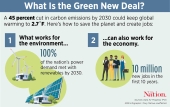
 1
1




Possible Media - This is where you start
www.possiblemedia.org | Follow us on Facebook | Subscribe to our Youtube channel
 1
1




 2
2








Possible Media - This is where you start
www.possiblemedia.org | Follow us on Facebook | Subscribe to our Youtube channel








Possible Media - This is where you start
www.possiblemedia.org | Follow us on Facebook | Subscribe to our Youtube channel
 1
1




 1
1





 1
1




1. my projects
 2
2








 1
1




 3
3









 3
3




Gainful unemployment is slightly different from radical homemaking, although the two strategies used together make for a dynamic synergy. In radical homemaking, someone from the household may have a normal job while someone else in the household works to keep living expenses low by helping the household to produce more than it consumes. Gainful unemployment is a strategy that Bob and I had to figure into the mix in order to survive, as it became clear early on that neither one of us wanted to go out to a job, and we still needed to pay some bills.
With gainful unemployment, a livelihood comes from myriad sources. If one income stream fails, it is never more than just a part of the income portfolio, which means it is significantly easier to replace than a full-blown salary. Another attribute of gainful unemployment is that all the different income sources draw upon myriad skills. Some sources of income come from physical work, some from intellectual work, some from skilled craftsmanship or artistic work. Bob and I have found that this reduces boredom, but also provides greater security if an injury or emotional trauma prevents us from doing one particular form of work. – A broken leg may make house painting an inappropriate income stream for a while, but a person could still do web design. A traumatic event in the family may make it difficult to focus on desk work for a spell, but the physical work of tending plants or livestock would be a welcome reprieve.
QuickBooks set up and Bookkeeping for Small Businesses and Farms - jocelyncampbell.com




Jocelyn Campbell wrote:I thought this couple had an interesting method that they describe as "gainful unemployment."
From Shannon Hayes' Gainful Employment post:
~ I also thought this family had an interesting lifestyle. And it would be nice if we could all live like that! However, not all of us own a 160 acre farm with sheep, chickens, cows, horses......
This lady is very fortunate that her parents own this Garden of Eden. And she also describes in her article all her residual income streams. She is a writer and sells e-books. But the farm itself sells candles and salves made from beef tallow as well as 100% sheep's wool blankets among other things. It sounds like a wonderful life!!
 1
1




 3
3




 but we didn't need a new car every year and what we got in exchange was a less stressful life and a closer relationship with our kids.
but we didn't need a new car every year and what we got in exchange was a less stressful life and a closer relationship with our kids.
soloenespana.wordpress.com
 1
1




 3
3




David Chapman wrote:
My wife and I are militant about eating 100% organic. As such, our food bill for just the two of us was a little over $700.00 at its peak. Now it's in the $500's because of the reduction in food costs due to what the food forest and garden are producing. So it's starting.
…
C. As the food forest produces more and more, I hope for our monthly food bill to get down to around $100.00 AND for me to be able to sell enough from the food forest where it's actually profitable for us.
D. It's hard to quantify the loss of potential expenditures such as health outlays because we are eating so healthy.
E. As food becomes more and more expensive (I believe it will be) I feel our food forest will turn out to be an absolutely fantastic investment.
Blessings,
Alana
 3
3




With gainful unemployment, a livelihood comes from myriad sources. If one income stream fails, it is never more than just a part of the income portfolio, which means it is significantly easier
Invasive plants are Earth's way of insisting we notice her medicines. Stephen Herrod Buhner
Everyone learns what works by learning what doesn't work. Stephen Herrod Buhner

|
Die Fledermaus does not fear such a tiny ad:
Learn Permaculture through a little hard work
https://wheaton-labs.com/bootcamp
|



